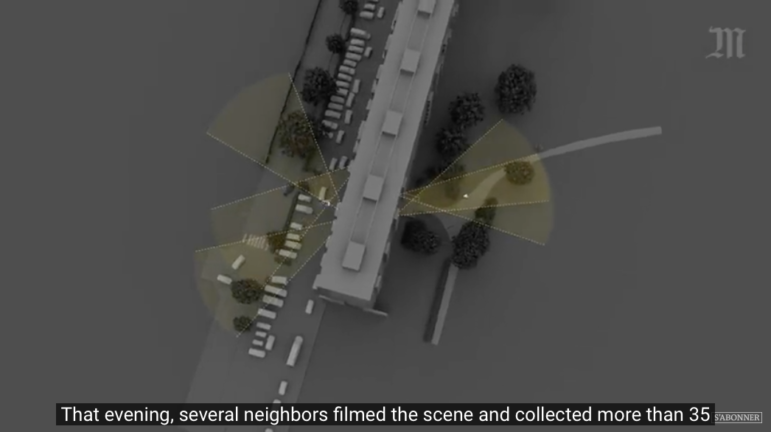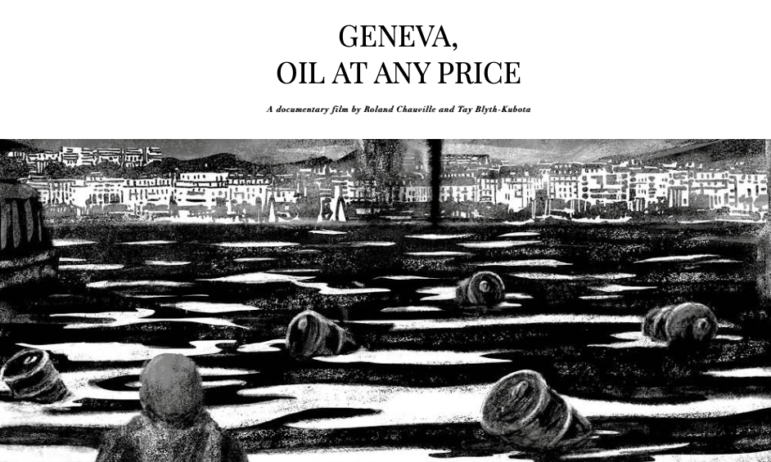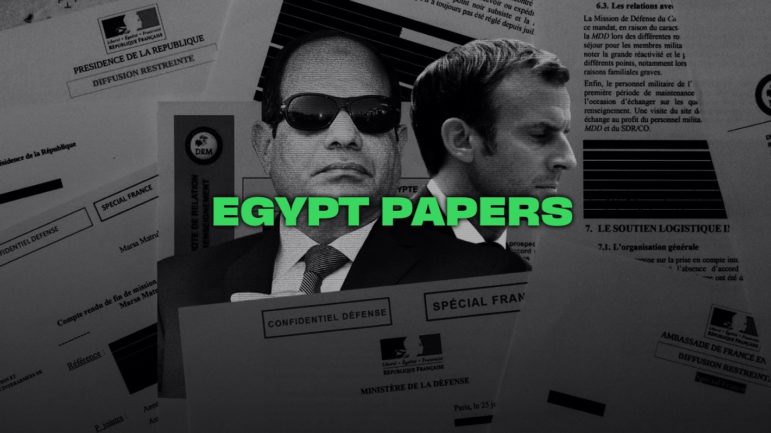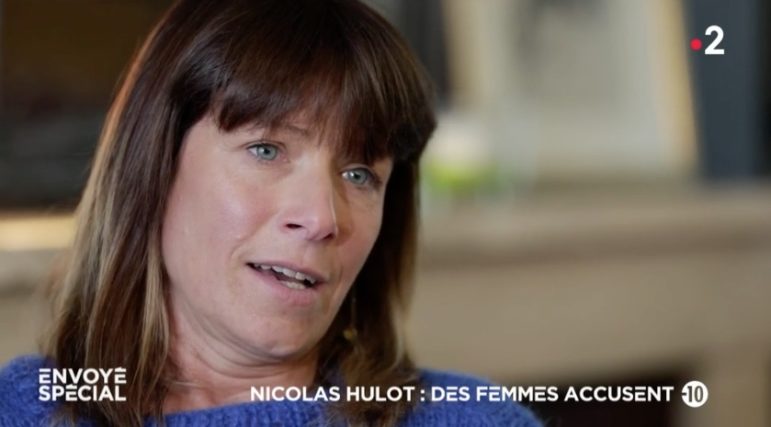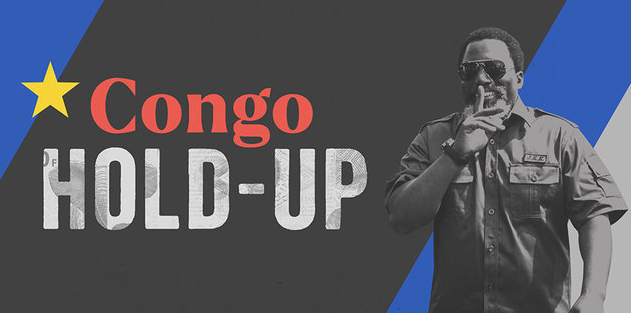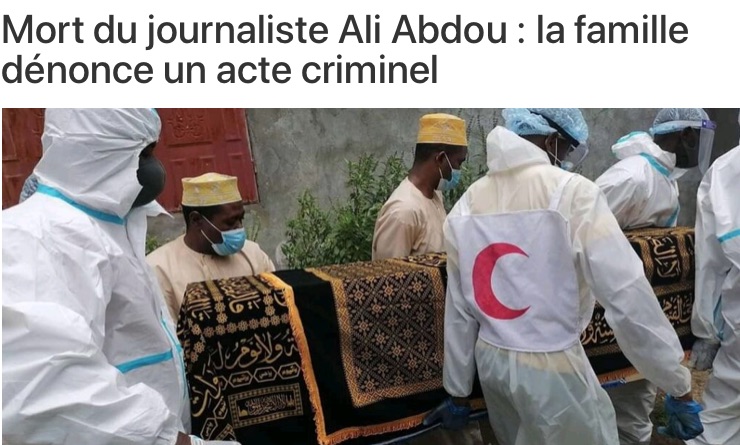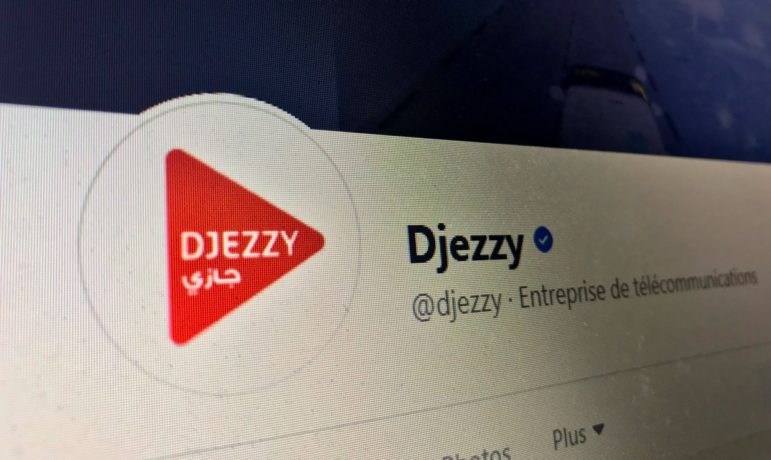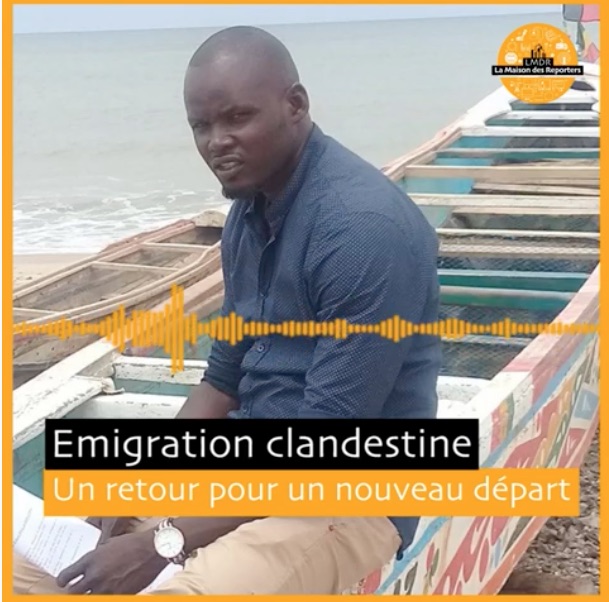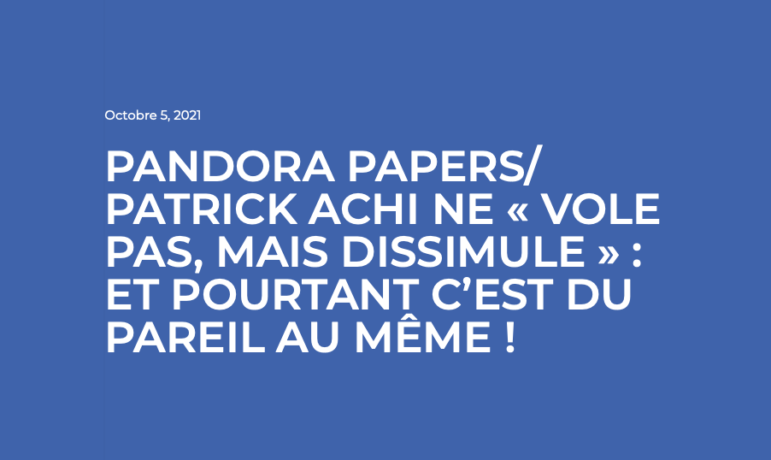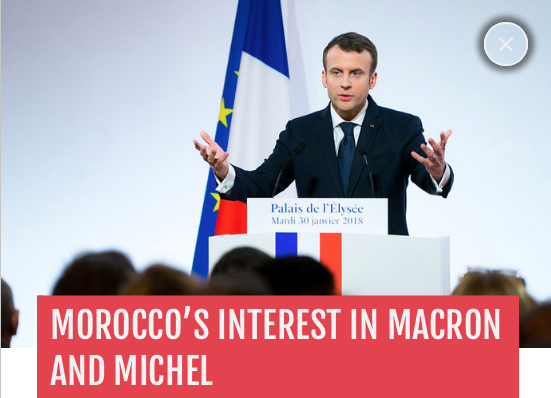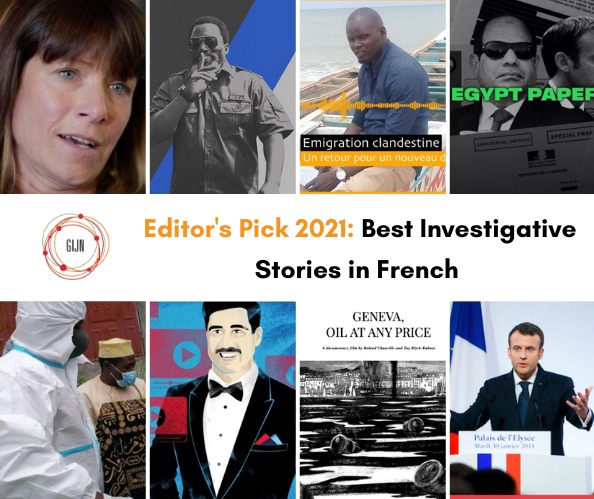
Over the past 10 years, the French-speaking investigative world has been bubbling up — investigations are more accessible for young journalists and are no longer just the domain of lone, veteran reporters. The launch of numerous independent media sites, the rise of collaboration among journalists, and the new technological tools available are certainly contributing to this burgeoning trend. And the results are visible today: 2021 was a “grand cru” for the French-speaking investigative world, and it was difficult for us to choose our top 12 among the many quality stories published this year. To make our selection (very subjective and arbitrary), we examined the techniques used, the stories’ impact on society, the risks taken, and geographic diversity. One thing is for sure, from Algeria to Canada; from the Comoros to Belgium: the journalists working on these investigations have shown courage and perseverance.
Read on to discover the investigations selected by GIJN French Editor Marthe Rubio, GIJN Francophone Africa Editor Maxime Domegni and GIJN French assistant editor Alcyone Wemaëre as the strongest of the year.
Re-Examining a Police Incident in a Paris Suburb Eight Years Later (France)
Self-defense is often invoked by security forces in cases of violence. Le Monde questioned this claim in a video investigation examining a chaotic police operation that turned the life of one family upside down on June 25, 2013, in Villemomble, a suburb of north-east Paris. Fatouma Kebe, 54, lost sight in one eye, while her son, Mohamed, was injured in the ear by a non-lethal Flash-Ball round. Seven years after the incident, in March 2020, the two police officers charged in the shooting were acquitted after pleading self-defense.
Le Monde’s video investigation traces the decisive 14 minutes of the police operation based on the case file, partly unseen images filmed by neighbors, testimony, and 3D models. While the police reported, for example, that they were surrounded by residents of the neighborhood, the videos and 3D modeling show this was not the case. The factual reconstruction of the operation gives the viewers all the elements to form their conclusion. The video received a “Special Mention” in the category “Best Investigative story, Medium-length” at the 2021 DIG Awards international festival in Italy.
Health Data Leaks to Russia (Belgium)
This collaborative story by the Belgian daily Le Soir and the independent quarterly Médor shows the extent that our personal data can be trafficked and exploited. It revealed that most of the patient data in Belgian public hospitals is processed by software from a US corporation which subcontracts part of the data analysis to a company based in Russia.
By exposing the contracts between that corporation and the hospitals, which were published in their entirety, investigators demonstrated that ultra-sensitive health data is accessible to IT specialists based in Russia — a country that does not comply with EU data and privacy protection standards. The exposé laid bare the vulnerabilities of information security systems, the consequences of privatizing public functions, and the difficulty of enforcing the GDPR policy across Europe. Following the publication of this story in March, the National Council of the Order of Physicians called out Belgian Health Minister Frank Vandenbroucke, demanding he change the contract to comply with EU privacy laws.
The Dark Side of Oil Trading in Geneva (Switzerland)
In August 2018, a former trader for major commodities company Gunvor was given an 18-month suspended prison sentence for having orchestrated more than $43 million USD in bribes in the Republic of Congo and Côte d’Ivoire from 2008 to 2012 in exchange for oil shipments. This conviction piqued the curiosity of documentary filmmaker Roland Chauville, and was the starting point for his film, coproduced with Tay Blyth-Kubota, “Geneva, Petroleum at any Price,” broadcast in June 2021 on Radio Télévision Suisse.
Based on documents obtained from the Swiss courts, and relying on the expertise of the Swiss NGO Public Eye, Chauville’s investigation discloses what few know: Switzerland — and Geneva, in particular — is the hub of world oil trading. There, companies buy and resell African oil with very little oversight from Swiss authorities. The documentary is also a tribute to human rights defenders, in Congo and elsewhere, who are fighting for fair access to the wealth of their countries.
World Wide Scam in Montreal (Canada)
A bogus contest to win $1,000, a fake virtual concert, or the promise of going to a movie for free: in the past decade, internet users across the globe have seen their personal and banking information extracted after clicking on these enticing offers. The Radio-Canada story “A Montreal Empire of Online Scams,” directed by CBC’s Les Décrypteurs, revealed that all these online traps emanated from a network of companies linked to one man.
Within days of the story’s publication, AdCenter, the online network’s cornerstone, suspended operations. Three months later, it announced that it was going out of business.
Egypt Papers Reveal France’s Role in State Crimes (France)
This represents the largest leak of secret defense documents in French history. Thanks to an anonymous source, the nonprofit investigative media site Disclose, a GIJN member, gained access to several hundred documents revealing France’s culpability in crimes committed by Egyptian dictator Abdel Fattah Al-Sisi. Among these were incidents that caused the deaths of dozens of civilians. Disclose chose to publish these documents despite the risk of legal action for “disclosure of national defense secrets,” in the name of the public interest and the right to information.
The five-part investigation unearthed shocking revelations. Started in Egypt in 2016, a French secret military operation whose objective was ostensibly to fight terrorism was implicated in at least 19 bombings of civilians, according to Disclose’s exposé. Despite repeated warnings from army and military intelligence about these extrajudicial executions, former French President Francois Hollande and current President Emmanuel Macron continued ‘Operation Sirli’ in Egypt. Macron even gave Al-Sissi France’s most prestigious civil award, the Legion of Honor, and allowed Egypt to order 30 French fighter jets, at a cost of nearly €4 billion ($4.5 billion USD). According to information from Disclose, Operation Sirli is still ongoing today. After Disclose published the leaked documents, the French government announced that it was opening an investigation — and filing a complaint against the anonymous leaker for violating national defense secrecy.
French Ex-Minister Accused of Sexual Abuse (France)
France TV’s “Envoyé Spécial” investigative program disclosed a bombshell just a few weeks ago, airing the testimonies of four women who have accused high-profile former French ecology minister Nicolas Hulot of sexual abuse and rape. The documentary reinforces the crucial importance of persistence in seeking responses from the targets of investigations. Hulot vigorously denied the claims, and accused the team them of failing to warn him of the investigation until a few days before the broadcast. The “Envoyé Spécial” team, however, was able to demonstrate that it had repeatedly requested comment from him several weeks before the broadcast, with no response.
Like this Liberation story in which eight women accused a former French TV anchorman of sexual violence, the France TV story also underlines the power of first-hand testimony in these types of investigations. It helps identify abuse patterns, and encourages other alleged victims to come forward. Indeed, two more alleged victims of Hulot spoke out after the broadcast. Two days before the investigation aired, Hulot openly dismissed the women’s claims, but also announced that he was withdrawing from public life. In response to the exposé, a preliminary investigation was opened by French prosecutors.
How the Kabila Clan Looted the DRC (Democratic Republic of Congo)
The scale of this collaborative investigation is massive, involving 3.5 million documents, 19 partner media, and five NGOs. But this scale was necessary, given the astronomical amounts that the former President of the Democratic Republic of Congo, Joseph Kabila, and his relatives allegedly attempted to siphon off at the expense of their fellow citizens — the vast majority of whom live on less than two dollars a day. According to information obtained by Mediapart and a French NGO, Platform for the Protection of Whistleblowers in Africa (PPLAAF), the Kabila clan schemed to embezzle more than $138 million USD in public funds between 2013 and 2018. The data was analyzed by the European Investigative Collaborations (EIC) Network.
The plan to carry this out was simple: all you had to do was control both a bank and a shell company. In this case, it was the BGFI DRC, of which 40% of the capital was held by Kabila’s sister, and whose director general was the adoptive brother of the president. Both also controlled a shell corporation, Sud Oil, installed in a former garage in the capital of Kinshasa. This story, which represents “the biggest leak” in African history, according to Mediapart, reveals the tricks and machinery behind a full kleptocracy. It also exposes its connections with many democracies, such as France, China, Switzerland, Belgium, and the United States. A judicial investigation was launched following the revelations.
What Caused the Death Journalist Ali Abdou? (Comoros)
In the Comoros, investigative journalist Hayatte Abdou was not satisfied with an official claim of “natural death” after the president of a young journalists’ union, Ali Abdou, was found dead at his home in 2020. Hayatte, who was not related to Ali, committed to finding out the truth about his death, which was pronounced “natural” by a local public prosecutor after a brief investigation.
Her story, published in February in National Mag, unearthed “disturbing evidence” showing that the journalist’s death was far from natural. For example, she learned that Abdou’s body was found lying in blood and that one eye showed signs of injury. She also discovered that the prosecutor who conducted the inquiry was related to people who had been embroiled in a land dispute with Abdou. Hayatte Abdou’s revelations enabled the deceased man’s family to file a lawsuit, shining new light on a troubling case that might otherwise have faded from view.
Behind the Scenes of a Telecom Acquisition (Algeria)
In Algeria, investigative journalist Lyas Hallas of the independent media site Twala Info dug into how the state failed to properly vet the acquisition of a large telecommunications company. Twala’s investigative series delved into the twists and turns of the sale, and reported that it happened at the expense of the Algerian citizens. The team also reported that the Dutch parent company hid its profit windfall and international currency transfers from local Algerian authorities.
Ex-Migrants Ready to Leave Again (Senegal)
Using programs to fight irregular immigration with tougher laws, Senegal — one of the main points of departure for migrants to Spain — is trying to stop the waves of sea flotillas leaving the country. Yet in 2020, more people than boarded boats in a boat in search of a better life in Europe. Investigative journalist Ass Momar Lô decided to go and meet the survivors of these perilous ocean crossings. He found that — even traumatized from prior journeys — many of these ex-migrants are just potential new starters.
Distributed by La Maison Des Reporters — an independent investigative site that uses crowdfunding to support young journalists — the story was recognized in November with the Norbert Zongo Prize for outstanding investigative journalism in Africa, in the radio category.
Pandora Papers Shake a Prime Minister (Côte d’Ivoire)
The discovery of the name of Patrick Achi, prime minister of Côte d’Ivoire, in the massive Pandora Papers database ignited an investigation by Ivorian journalist Noël Konan. But, after months of reporting, Konan’s story had yet to be published — causing local and international media to rally to his defense against what appeared a coordinated campaign to hide his findings.
Konan pushed back against this alleged editorial pressure on October 4, when he published a series of tweets, including: “What I had feared for a while has finally happened. My story on the prime minister, Patrick Achi, was not published in my newspaper.” The director of the newspaper responded by saying that Konan’s claims could not be verified, and that he had the “right to refuse the publication of an article because information has not been cross-checked.” Konan’s exposé — which disclosed the existence of an offshore consulting firm that the prime minister had in the Bahamas before he assumed the role of premier — was eventually published by the emerging Ivorian investigative site, Enquête Média.
Pegasus Project, a Collaborative Story with Global Shockwaves
The genesis of the Pegasus Project investigation? A list of 50,000 phone numbers leaked to investigative consortium Forbidden Stories, a France-based GIJN member, that were suspected to have been targeted by invasive spyware — because they belonged to journalists, political activists, and heads of state. Named after the spy software, the investigation scrutinized the source of the surveillance tech, Israeli company NSO Group, as well as Pegasus clients, which, according to the consortium, included governments of both autocratic regimes (Bahrain, Morocco, Saudi Arabia ) and democracies (India, Mexico). Forbidden Stories, supported by Amnesty’s Security Lab, coordinated with an international team of journalists from 16 news sites for months. After analyzing the phones of the suspected targets, investigators found that the 14 heads of state, including French President Emmanuel Macron, had been targeted. Analysis of the phone of the founder of the investigative site Mediapart, Edwy Plenel, showed that he too had been hacked three times by Pegasus, along with 179 other journalists around the world.
Shockwaves from the Pegasus Project rippled across the globe. The UN has called on states to temporarily cease the sale and transfer of surveillance technologies. The Pegasus Project won the Reporters Without Borders Press Freedom Prize, but the most symbolic recognition came from the European Parliament, which awarded Forbidden Stories its inaugural Daphne Caruana Galizia Prize, named after the courageous Maltese journalist.
Additional Resources
Tips from the Pegasus Project: How to Report on Predatory Spyware
Lessons from the Pandora Papers: How to Investigate Financial Crime Stories
Tips for Investigating When Governments Shield Crime and Corruption
